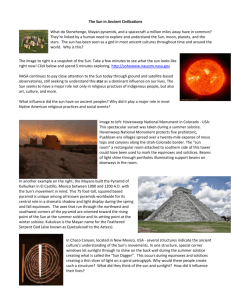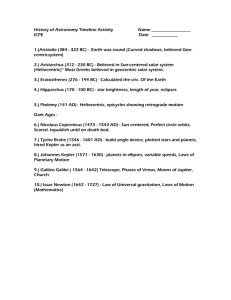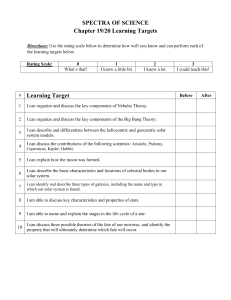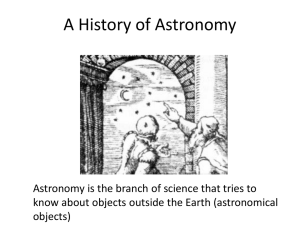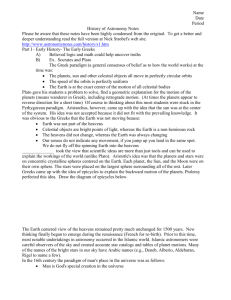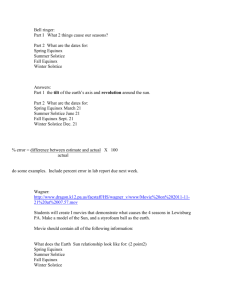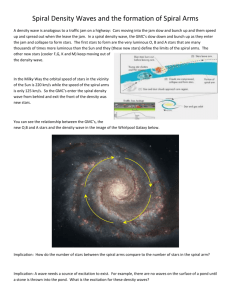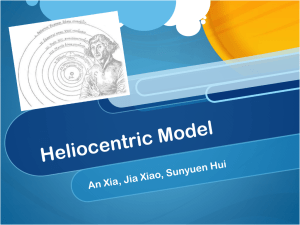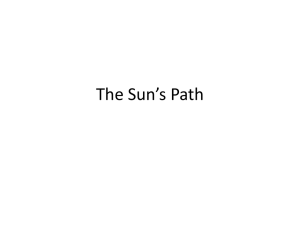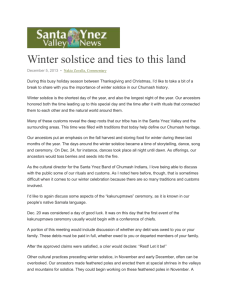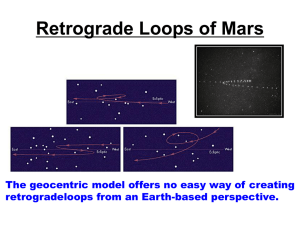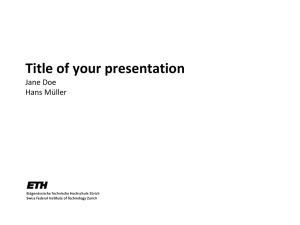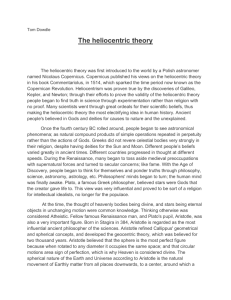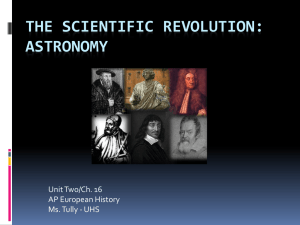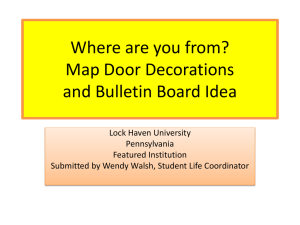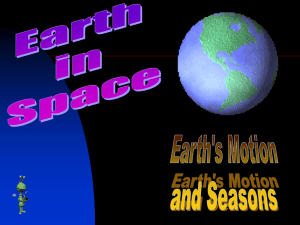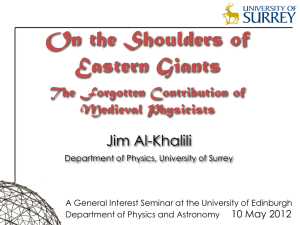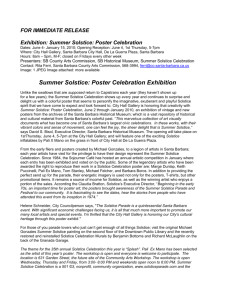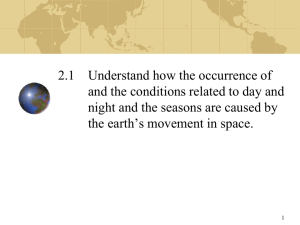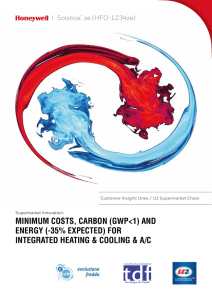The Beginnings of Cosmology
advertisement
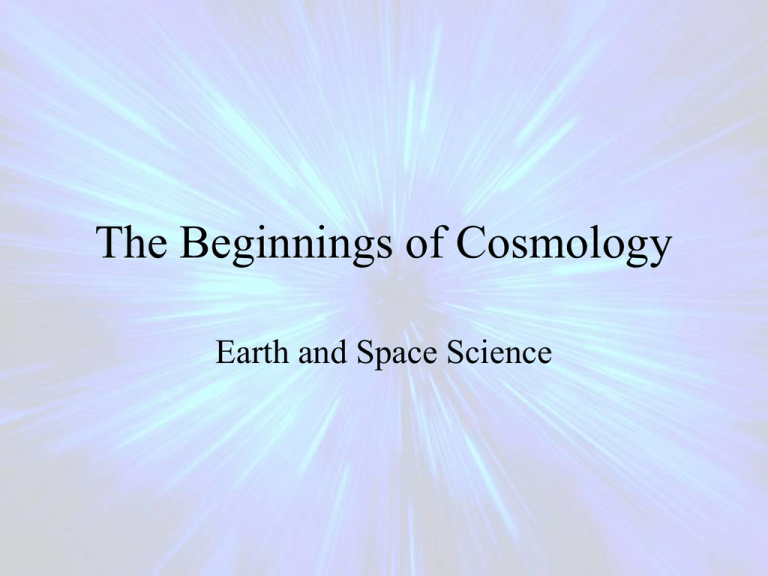
The Beginnings of Cosmology Earth and Space Science Ancient People • Sailors—used stars to navigate • Farmers—used changes in seasons to plant and harvest Mythology • • • • • • Constellations Same Clusters, different pictures Celestial Sphere Ancient Chinese Greeks Middle Ages – Chinese and Muslims still learned/Europe did not Architecture • Stonehenge Temple and ancient calendar that shows positions of the sun and the moon at different times during the year. Architecture • Chitzen Itza People at Chichén Itzá can see “the snake,” an apparition made of shadows that descends the stairs at El Castillo during the solar equinoxes each spring and fall. At El Caracol, dubbed “the observatory,” narrow shaftlike windows frame important astronomical events. One such window marks an appearance of Venus at a particular point on the horizon that takes place—like clockwork—once every eight years. Architecture • Sun Dagger in Chaco Canyon, NM (calendar) • At summer solstice, a vertical shaft of light pierces the main spiral exactly at its center. On the winter solstice, two shafts of light perfectly bracket the same spiral. Light shafts strike the center of a smaller spiral nearby on the spring and fall equinoxes. Architecture • Big Horn Medicine Wheel (28 Spokes) If you stand or sit at one cairn looking towards another, you will be pointed to certain places on the distant horizon. These points indicate where the Sun rises or sets on summer solstice and where certain important stars rise heliacally, that is, first rise at dawn after being behind the Sun. The dawn stars helped foretell when the Sun ceremonial days would be coming. The area is free of snow only for 2 months -around the summer solstice. Geocentric View • Until 16th century • Aristotle—4th century B.C. – Planets moved in circles around the earth • Ptolemy—140 A.D. – 80 circles; very complex • Aristarchus of Samos—3rd century A.D. – Proposed that planets orbit the sun Heliocentric View • Nicholas Copernicus—16th century – Earth spins on its axis and orbits the sun; only the moon orbits the earth – Earth is round—studied lunar eclipses • Galileo Galilei—16th century – Popularized Copernicus’s book. It was banned in 1611 by the Catholic Church until the end of the 18th century. He refused to stop teaching the heliocentric view and was placed under house arrest in 1633 for the rest of his life. (1642) – Invented the modern telescope Heliocentric View • Johannes Kepler—1500s – Developed the laws of planetary motion – Worked for Tycho Brahe who compiled data that led to Kepler’s conclusions.
